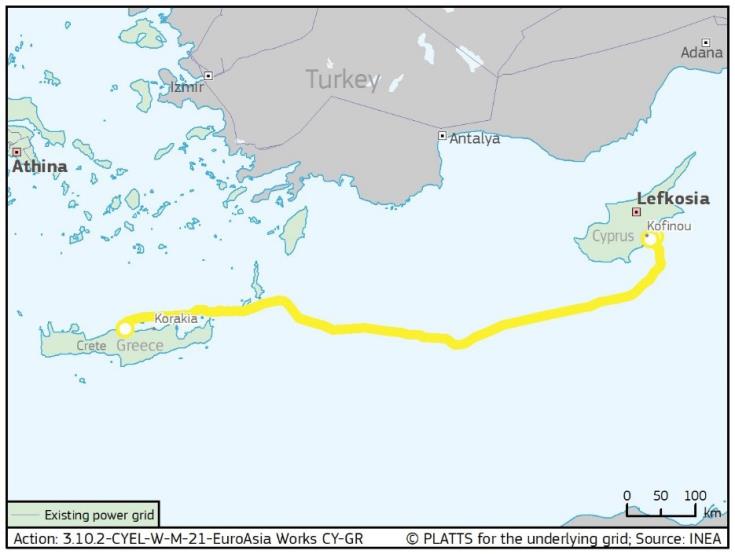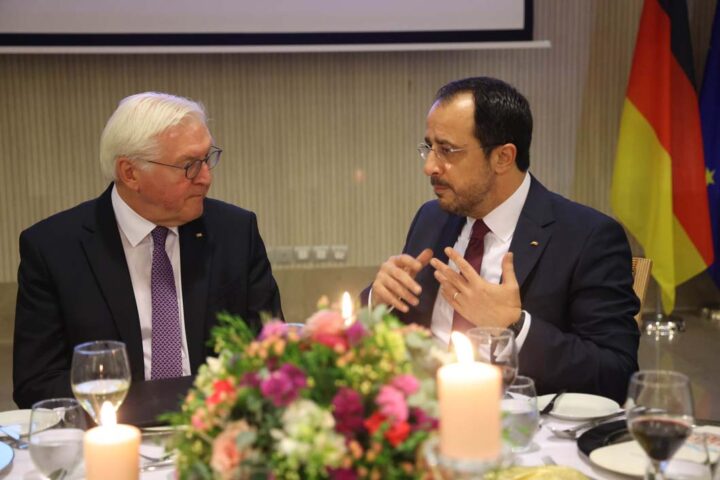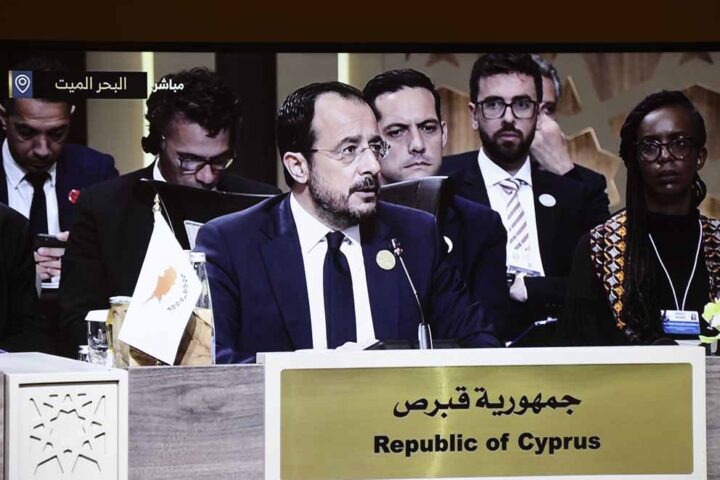The informal European Council meeting in Versailles set the foundations for the bloc’s gradual independence from external energy suppliers, starting from Russia with its stranglehold on natural gas pipelines, primarily to Germany.
There is talk of allowing some flexibility and continued tolerance of high-emission crude-burning power stations in the name of security of supply.
But the foundation of Ursula von der Leyen’s ‘Green Deal’ has been and should remain the drastic reduction of over-reliance on oil.
Perhaps now, more than ever, fast-tracking clean energy streams should become a priority.
At the same time, EU partners are displaying a two-speed approach to imposing sanctions on Russia over its invasion and occupation of eastern Ukraine while remaining apathetic to Turkey’s fence-sitting, allowing the ‘western’ punishments on Moscow to wane gradually.
This is not solidarity, and the Cyprus government has been pushing this message forward, not because Turkey is the aggressor here, but for the simple reason that if Ankara is not chided, it will be free to return to its antics to become the Pirate of the Mediterranean, simply because it wants to.
The EU’s incompetence to stand firmly by Greece when Ankara deployed its naval and diplomatic forces to forge its agenda in Libya, destabilising relations between Europe, North Africa and Egypt, will haunt Brussels, with the Turkish President preparing his next charm offensive to dupe the West into maintaining it as an irreplaceable partner.
Turkey’s ambitions in the eastern Mediterranean are clearly against the European Union’s interests, especially when ensuring energy security of supply, a crisis exacerbated by the current situation due to inaction in the past.
EU leaders want Cyprus to join the ban on Russian oil and gas imports, and other trade that would otherwise help finance the Kremlin’s war machine.
In that case, they should also ensure that projects of common interest, such as the EuroAsia and EuroAfrica electricity cables, remain undisturbed.
Whereas licensing of the interconnector projects is proceeding at light speed in Cyprus, it’s high time Brussels found out why this process is dragging along in other partner countries, especially Greece.
Speaking in Versailles, President Anastasiades highlighted the important role Cyprus can play through synergies in the region, for the unhindered transfer of energy to Europe, either from the newly discovered natural gas fields off Egypt and Israel, and the two electricity interconnections, which are shovel-ready projects and will provide tremendous benefits to the EU grid.
Cyprus argues it is the last and only non-energy interconnected EU member state; perhaps these power cables should be seen as a critical piece in the bigger European puzzle of energy independence, becoming a bridge of peace and prosperity between continents, connecting the grids of Europe with Asia and Africa.










